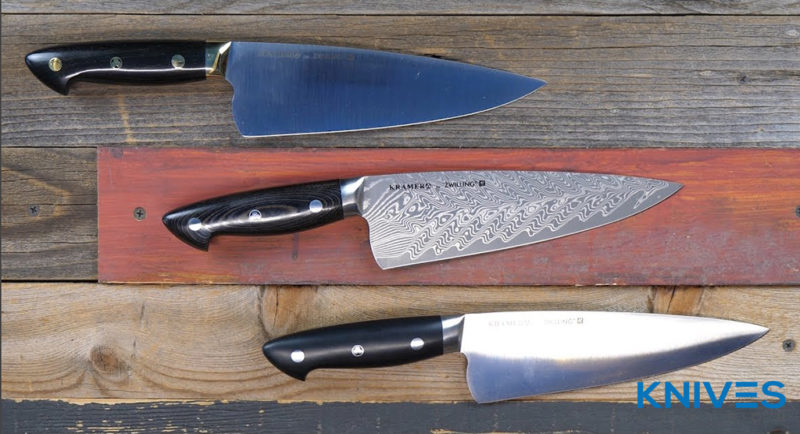
Some claim its due to the wind that the steel was exposed to after the forging process. This steel is layered together in flat plates heated folded and hammered flat over and over again to gain more and more layers.

Damascus steel knives Damascus steel is the name given to steel which is made by forging together iron and steel or steel alloys.
Is damascus steel carbon steel. Is Damascus steel stronger than normal carbonstainless steel. For a couple of reasons. Forging a true Damascus blade is a lost art.
We just dont have the knowledge anymore. The way its produced today is meant to simply mimic the look of the pattern welded steel. Secondly the impetus behind the Damascus blades was to make a better.
The steel needed to forge a Damascus blade can vary depending on the blades purpose. Stainless steel high-carbon steel or even a blend of the two are the main requirements to make this blade. Blades made from high-carbon steel are well known for their ultra-sharp edges.
By casting iron and steel together under a reducing atmosphere with little to no oxygen the metal started absorbing more carbon from charcoal resulting in a very sturdy type of steel called Damascus steel. And the special wavy pattern is still up for debate. Some claim its due to the wind that the steel was exposed to after the forging process.
Damascus steel is created by the forge welding of two different types of steel usually one high carbon and one low carbon steel. This steel is layered together in flat plates heated folded and hammered flat over and over again to gain more and more layers. Damascus and Japanese sword steels are hypereutectoid steels.
The room temperature mechanical properties of the ultra-high-carbon steels exhibited a yield strength of 900 MPa and an ultimate strength of 1100 MPa. Ultra-high-carbon steel has approximately 12520 carbon content. Steels that can be tempered to great hardness.
Low carbon steel on the other hand is more ductile and tends to bend than break which makes it easier to weld. Damascus steel knives Damascus steel is the name given to steel which is made by forging together iron and steel or steel alloys. The steels used in Damascus steel are often a mix of a high carbon steel and a steel with nickel alloying.
The former gives it excellent hardness and the latter gives it toughness that resists brittle fracture and some corrosion resistance. A Brief History of Damascus Steel. Damascus and Japanese sword steels are hypereutectoid steels.
The room temperature mechanical properties of the ultra-high-carbon steels exhibited a yield strength of 900 MPa and an ultimate strength of 1100 MPa. Ultra-high-carbon steel has approximately 12520 carbon content. Steels that can be tempered to great hardness.
Originally Damascus steel was used to get the mid between high carbon steels and iron. If the high carbon steel were used it was often too high and due to them not knowing heat treating to the advance we know today it would snap too easily. Damascus steel is steel known for the lovely wavy or watery pattern on its surface that dates back to as early as 500BC.
It was mostly used to make sword blades which gained fame for their remarkable sharpness and hard-wearing durability as well as their beauty. Damascus steel is one of those things whose name people cant seem to agree on. This is not true as both authentic wootz steel and real pattern welded Damascus steel blades undergo acid etching treatment after polishing to make the Damascus folds and patterns more visible.
However only when acid etching or laser etching is done exclusively on cheaper blades such as stainless steel or carbon steel without the layering or smelting of steel is the Damascus knife. The choice between Damascus steel and ordinary stainless steel is not necessarily as crucial as that between stainless steel and traditional carbon steel. In fact your next Japanese chefs knife may combine a beautiful Damascus pattern with all the resistant qualities of stainless steel.
Many manufacturers in Seki City are now crafting Damascus blades using the best VG-10 or 10A steel. Pattern welded Damascus steel scimitar is a hard heat treated folded carbon steel. There are 11 pieces of steel folded five times making 352 layers.
The steel is the perfect combination of hardness and durability with a Rockwell hardness rating between 55 and 56 HRC.